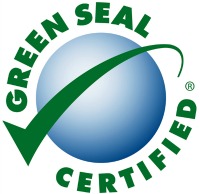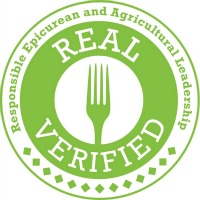
We don’t know how important strict adherence to the principles of sustainable restaurant operations might be to the long-term success of your business. But we can’t help but notice that the number of organizations that will certify your restaurant as following sustainable practices has risen to three. Let’s look at the organizations that bestow sustainability credentials in this suddenly crowded field.
The Green Restaurant Association has offered certification services for a number of years. This Boston-based nonprofit’s services begin with an environmental assessment to establish a baseline in relationship to its Green Restaurant 4.0 certification standards. From there, the GRA offers consulting to help restaurants get up to speed on environmentally sustainable restaurant businesses practices; certifies that restaurants are doing so, complete with a colorful seal operators can slap on their websites, door, menus and elsewhere; and offers public relations and marketing services to help get the word out about what your GRA-certified restaurant is doing.
What’s the cost?
“The costs can be as low as $300 per year to become a Certified Green Restaurant, depending upon term of contract, restaurant size, and how many locations sign up. For more in-depth services, such as environmental assessments, environmental consulting, and communications support, the fees are higher,” says the GRA website.
The sustainability certification trend is not just a U.S-based phenomenon. The London-based Sustainable Restaurant Association, in operation for a number of years in Europe, is now making a push into the U.S. restaurant market. Here are the basics of what it offers:
“To get rated, restaurants are examined in 14 key focus areas and provide detailed evidence to support their answers across three main sustainability categories: sourcing, environment and society. Carried out online and overseen by expert SRA assessors, there are three potential ratings: One Star, Two Star and Three Star Sustainability Champion.”
The cost for SRA’s service? “By taking the rating for free you’ll get a provisional score for your sustainability. After that you can opt to formalize it into an official SRA Sustainability Rating. The official rating costs $295 and once finalized you will receive an award certificate and stickers, sustainability report with advice and recommendations as well as appearing in our online Sustainable Restaurant Guide.”
Other services are available. Similar to the Green Restaurant Association program, SRA offers a consultancy option to help restaurants increase their scores. It also links members to an insurance broker, the idea being that restaurants that follow sustainability guidelines likely qualify for a lower insurance premium.
Here in the U.S. the newest certification organization comes from the U.S. Healthful Food Council. This Washington, DC-based non-profit offers restaurants what it dubs the REAL certification program, which adds a nutritional component to sustainability certification.
 “REAL (Responsible Epicurean and Agricultural Leadership) is a voluntary, points-based nutrition and sustainable best practices certification program modeled after the U.S. Green Building Council LEED certification program,” the council says.
“REAL (Responsible Epicurean and Agricultural Leadership) is a voluntary, points-based nutrition and sustainable best practices certification program modeled after the U.S. Green Building Council LEED certification program,” the council says.
“Developed with the input of experts in nutrition, health, sustainability, foodservice and behavioral economics, the REAL Index is a consensus-based standard used to evaluate and recognize restaurants and other foodservice establishments that complete the USHFC’s extensive, third-party certification program.”
“REAL Certification signals to the public that the entire establishment—not just a few menu items—utilizes nutrition and sustainable best practices.”
As is true for the other certification programs, USHFC will do post-certification marketing to make the media, customers and others aware of a restaurant’s adherence to its standards.
Its cost?
“Our pricing is contingent on numerous factors such as size, location and number of units,” says USHFC president Lawrence Williams. “But as a starting point, REAL Certifications begin at $400, which simply goes to offset the price of bringing in an outside registered nutrition specialist. The main difference between GRA/SRA and REAL Certification is that we're the only one that is focused on both nutrition and sustainability.”
USHFC has already awarded certification to a number of well-known restaurants in its Washington, DC, home base. The list includes Founding Farmers, Ris, Restaurant Nora and Chipotle’s new Southeast Asian fast casual operation, Shop House. Now it’s looking to go national.
Do you need one, two or all three of these certification services to verify your restaurant’s sustainable to the dining public? No matter what you decide, it looks like all those 2013 trend forecasts predicting that sustainability would gain traction this year were correct.



